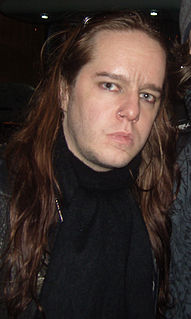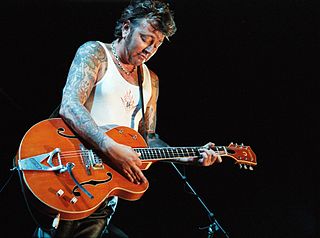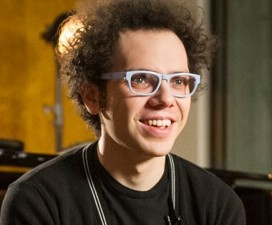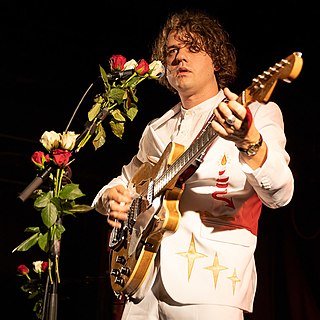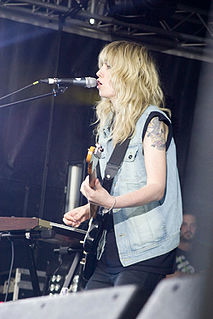A Quote by Borns
I was pretty young when my folks were playing those kinds of records, '70s rock and psychedelic stuff. So I just remember those songs being synonymous with my childhood, and I was always trying to imitate them on piano.
Related Quotes
I bought a Three Dog Night album when I was pretty young, and I remember listening to all those songs. That's just greatly crafted songwriting, and the songs have such great harmonies. I remember marveling over those and trying to figure them out on piano. That was my early education - figuring out records, older records, as a kid.
... so much of what we do now started in 1954 at Sun Records in Memphis Tennessee ... those guys were inventing that stuff (Rock & Roll) ... you can really tell on some tracks ... they were actually afraid at times of what they were playing. But Rock & Roll definitely didn't come before that time; it started right there
I started writing songs when I was real young, when I was 3 years old. The piano spoke to me - I don't remember when I wasn't playing piano. My second grade talent show was the first time I performed my own thing. I dressed up as Dracula and played a song called 'Monster Rock' that I wrote. And I won.
There are certain records from the 80s and early 90s that you love because the songs are great, but you don't go to them as an example of great production. Over the last 20 years, myself and a lot of other musicians my age have tried to discover things in 50s, 60s, and 70s recording techniques that were lost or discarded. We've all been trying to crack this code. It's been an important period in the last 15 years, reclaiming some of those lost approaches to making records.
I remember writing a song when I was about 15. This is the one I can remember. I know I'd been writing poetry for a long time, since I was about eight, but I remember my first one that I put to chords. I was really trying to be like the psychedelic era Beatles, I was obsessed. All I could think about was Beatles and Hendrix. So I tried to write a psychedelic song, and it was the worst. I couldn't even... If I read it now - I still have the book somewhere - it makes me cringe out loud. It was just about psychedelic stuff.
Jazz stopped being creative in the early '80s. After your acoustic era, where you had the likes of the Miles Davis Quintet, when it gets to the '70s it started being jazz fusion where you had more electronic stuff happening, then in the '80s they started trying to bring back the acoustic stuff, like Branford Marsalis and the Wynton Marsalis & Eric Clapton sextet. It started dying down from there. Miles was still around in the '80s and he was still being creative; he was playing Michael Jackson songs and changing sounds, but a lot of people were still trying to regurgitate the old stuff.

